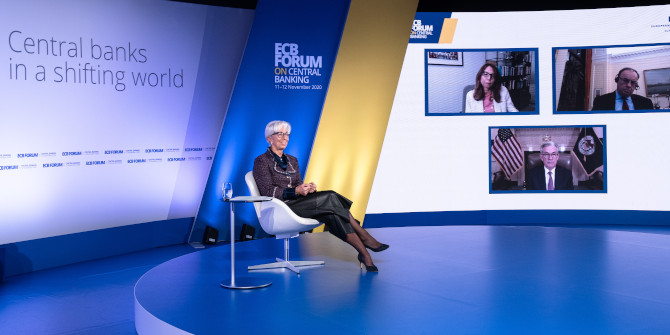Spain’s general election on 23 July failed to produce a clear majority for either of the two main political blocs. Sebastian Contin Trillo-Figueroa and James F. Downes argue the election is likely to lead to further volatility and fragmentation on the left and right of the political spectrum. This will make governing Spain a difficult task in the future.
The Spanish general election on 23 July has resulted in gridlock, amid recurring patterns of volatility and fragmentation. This outcome makes governing Spain even more difficult. The centre-right People’s Party (PP) emerged as the numerical winner, with 136 out of 350 seats in the Spanish Parliament. However, the PP failed to obtain a parliamentary majority. The radical right party, Vox, meanwhile, saw a reduction from 52 to 33 seats.
Some commentators had argued prior to the election that working with Vox would allow the PP to form a right-wing coalition government. But between them, the PP and Vox obtained only 169 seats. This still leaves them seven seats short of the 176 required to form an absolute majority and they are unlikely to be able to form a government.
Meanwhile, the incumbent centre-left Socialist Party (PSOE), led by Prime Minister Pedro Sánchez, did better than expected, achieving 122 seats. These seats, alongside the seats of other parties, may allow it to form a progressive bloc through a mixture of direct (coalition) and indirect (abstention) support.
Such a bloc could include radical-left parties like Sumar, which has 31 seats; separatist factions such as the ERC and Junts, with 7 seats apiece; nationalist groups like the Basque Nationalist Party, which has 5 seats; and EH Bildu (6 seats), whose leader was formerly a member of the terrorist group ETA. However, such a government would undoubtedly attract criticism both externally and from within the PSOE’s party ranks.
The role of peripheral parties
Spain’s uncertain journey towards a new government is likely to extend for several weeks, until late August or even September. Separatist and nationalist forces are known for pushing their demands and seeking to secure greater concessions. Much negotiation will therefore need to take place.
The Spanish left has proved ready to embrace agreements. Different left-wing parties have forged a coalition that is widely accepted within their ranks. And parties on the left may be even more tempted to do this if the alternative is merely to call for new elections.
The same applies to Junts and ERC, who share reservations about the PP. The last time the PP was in power, it implemented constitutional rules to prevent a Catalan independence referendum. If Junts and the ERC believe they will receive policy concessions, these parties may offer their support to the PSOE. However, these concessions cannot include a referendum, which would in any case be blocked by the PP in the Senate.
While the government has not yet undergone significant change, its current state prevents it from making key political decisions, limiting its manoeuvrability when confronting crucial policy issues. This is especially concerning given Spain currently hosts the rotating presidency of the Council of the European Union.
What went wrong for the PP?
The PP’s failure at the general election was all the more surprising because municipal and regional elections earlier this year had looked like a major success story for the party. The party’s decision to avoid sending its leader, Alberto Núñez Feijóo, to one of the televised candidate debates prior to the general election was a particularly glaring mistake as it suggested to Spanish citizens the party lacked interest in presenting an alternative vision for the country.
Feijóo is a seasoned political leader who had previously won four absolute majorities in the region of Galicia. His failure, however, could open the door to Isabel Díaz Ayuso, who is emerging as a potential future leader of the party. This would raise the prospect of the PP attracting a substantial share of votes from Vox, as Ayuso previously did in the 2021 Madrid regional elections. But right now, all these prospects remain uncertain.
In direct contrast, the PSOE’s decision to hold a snap ballot six months ahead of schedule was a resounding strategic success. While some considered it an irresponsible political move at the time, it effectively hindered the right’s ability to form a government, with the PSOE performing far beyond expectations.
The road ahead
Recent election results have seen a number of radical right parties increase their presence. Western European countries including Italy, Austria, France, Germany, the Netherlands and Greece have all experienced this. In Hungary and Poland, the radical right are currently the main governing parties. Northern Europe has also seen the rise of radical right parties, most recently in Sweden and Finland.
The fact that Vox’s support declined in the 2023 general election marks Spain out as something of an outlier in this context. Yet Spain’s contemporary political landscape is complex, with fragmented party competition. Radical left-wing and secessionist nationalist parties also play an important role.
If the PSOE manages to form the next government, it will face the challenge of leading a decentralised country. A significant number of regional and local governments are likely to be controlled by the right-wing national opposition, inhibiting governance. Inter-party conflict would likely increase as a result. This would risk damaging Spain’s “autonomous state” system.
In such a scenario, maintaining a coherent ideological vision and policy direction for the whole of Spain would be a major challenge. To advance its agenda effectively, the PSOE would have to cautiously seek consensus with regional and local governments. But maintaining effective governance in such a polarised nation would be an unenviable – and perhaps impossible – task.
Note: This article originally appeared at the Loop. It gives the views of the authors, not the position of EUROPP – European Politics and Policy or the London School of Economics. Featured image credit: Marcos del Mazo/Shutterstock.com




